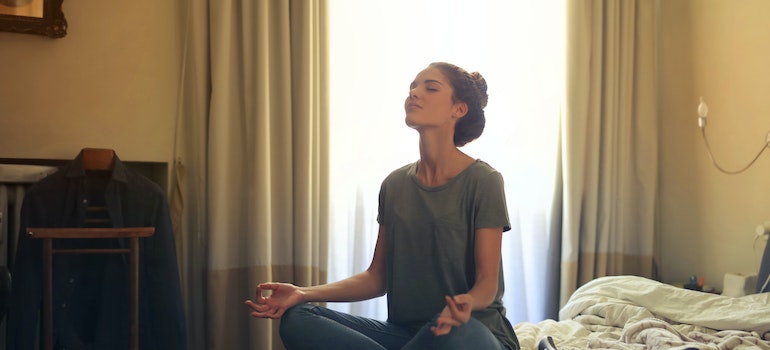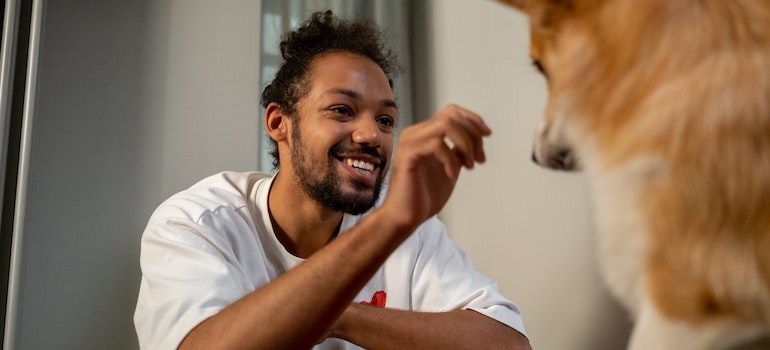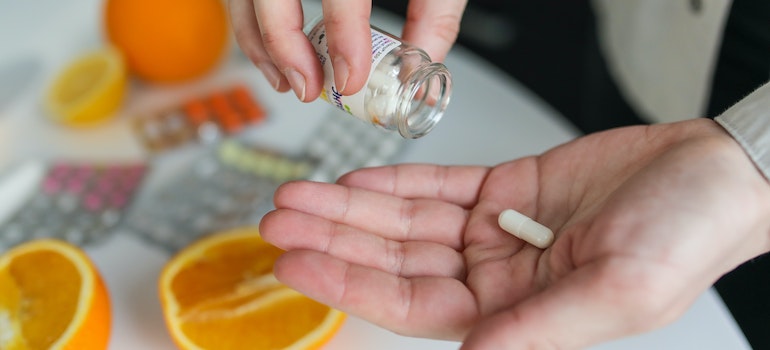Addiction therapy is one of the key aspects of treatment at drug and alcohol rehab centers WV. The goal of that therapy is to address the mental aspects of addiction as well as your mental health overall. But that doesn’t mean you can just neglect self-care. If anything, rehab is the perfect time to learn how to deal with your own thoughts and feelings. Finding ways to take care of your mental health during recovery in West Virginia will not only make rehab easier for you but also help you maintain your sobriety in everyday life afterwards. So what are some things you can do to make yourself feel better?
#1: Take care of your mental health during recovery in West Virginia by taking breaks
Rehab is hard work. Detoxing can take a physical toll, therapy is emotionally draining, and battling cravings is exhausting. You cannot go through such intense treatment day in, day out and be committed to it 24/7. This is why even in residential rehab programs in WV, you have unstructured free time to do whatever you want. This is your opportunity to disconnect for a little while.

It may sound counter-intuitive, but taking a break from any given task can actually make that task easier to complete. This is especially relevant for tasks that take a lot of mental and emotional investment. So don’t feel like you’re wasting your time in rehab by taking a scheduled break – the free time is there for a reason. Relaxing in your bed with a book, taking a hot bath, or even just having a nap is time well spent. It replenishes your energy and prevents burnout. Regular breaks will actually make it easier for you to focus on your rehab and get the most out of it.
#2: Incorporate regular exercise into your life
Regular physical activity has repeatedly been proven to have a positive effect on mental health. It helps redirect energy toward a productive action and clears your mind through repetitive movement. Furthermore, exercise releases happy hormones in the brain; this, in turn, improves your mood and even paradoxically increases your energy levels. While physical activity won’t cure you of addiction or other mental health issues, there is some truth to the idea that a healthy mind resides in a healthy body.
Consistency is key when it comes to exercise so you’ll want to choose something you like and have time for at least 3-4 times a week. It doesn’t have to be high intensity – you can walk or hike, run or bike, do yoga or pilates. These types of workout don’t require much equipment or investment so you can just jump into them. A minimum of 30 minutes of movement is recommended per day, so you’ll have plenty enough time for exercising while attending an intensive outpatient rehab in WV. And if you need any extra motivation, consider joining a gym, getting a personal trainer or starting on a sports team. That way, you’ll be accountable to someone else and they’ll encourage you to work out regularly.
#3: Take care of your mental health during recovery in West Virginia by practicing mindfulness
Mindfulness is the practice of grounding oneself in the moment. The goal is to shift your focus to simply being present in your body without evaluating your situation, actions, or emotions as negative or positive. Doing this can help your thoughts stop spiraling out of control; it’s helpful in the cases of anxiety, stress, and panic attacks. Most commonly, mindfulness is practiced through meditation where you relax your body, close your eyes, and focus on just breathing in and out. Your head should clear of all thoughts other than what you can immediately perceive with your senses. This is why another popular way to practice mindfulness is the 54321 exercise – naming 5 things you can see, 4 things you can hear, 3 things you can smell, 2 things you can touch and 1 thing you can taste.

Mindfulness is relatively easy to practice in the moment once you find a technique that works for you. The trick is testing out the different techniques and then remembering them when you start feeling anxious. But the more you practice, the easier it becomes. This is why sometimes, group therapy for addiction includes a few minutes of silent contemplation – a moment of mindfulness can help you focus on the therapy and participate in it more confidently and fully.
#4: You can greatly improve your mental health with a healthy diet
A healthy diet can do wonders for your physical health. The food you eat is the fuel your body uses for everything it does from breathing to thinking to exercising. The better the fuel you consume, the more energy you’ll have. The more energy you have, the less exhausting recovery will be; you will no longer feel too tired for anything else after therapy or have to trade exercise for sleep – rather, you’ll be able to do it all. Furthermore, a healthy diet can help you balance your hormones, manage certain health conditions like diabetes, improve your sleep, and more. Since physical and mental health are linked, improving one often improves the other. A healthy diet works in that sense the same way as exercise – by improving your overall health.
But what does it mean to eat healthy? You may be surprised to find that popular diets like keto, paleo, Atkins, and intermittent fasting are typically not the way to go. This is because every body processes food differently. So you want a unique food plan catered to your needs rather than a trendy way to lose weight. You can consult with a nutritionist as a part of holistic addiction therapy in WV; they will help you learn what foods are good for you and even plan some meals. Their advice may include:
- limiting your sugar intake
- replacing simple carbs (like white flour and potatoes) with complex carbs
- cutting out or limiting the amount of saturated fat in your diet
- a diet with more fruit, vegetables, and fish but less fatty meats
- eating more balanced meals
- smaller meals more often

#5: Setting the right goals can help you take care of your mental health during recovery in West Virginia
Recovery is a long process. Sometimes, it feels like there is no end in sight. This can be very discouraging. If you are constantly working hard toward something but feel like you’re achieving nothing, your mental health will almost certainly suffer. So focus on things you can actually achieve instead. This may require you to reconsider your thinking about recovery.
- Don’t make something a goal if it’s out of your control. Health, for example, is very complex and influenced by many factors. Some of those factors are genetic or environmental and there’s nothing you can do about them. So don’t set the goal of getting healthy because you can’t guarantee you ever will; instead make your goals the health factors that are under your control – quitting smoking, exercising, eating healthy.
- Break down large goals into small, more manageable tasks. Ultimately, you want to get sober but that is a long-term plan that you will have to work hard for. Instead of thinking about something so far down the line, look at the next step you need to take. Make it your goal to start cocaine addiction rehab in WV. Then, once you’re in the program, focus on detoxing. Stick to achieving the next step and the sense of accomplishment will keep you going.
- Put a time limit on your goals. Instead of thinking far into the future, keep yourself in the present. If your goal is to never drink again for the rest of your life, you won’t be able to tick that box on the to-do list for years to come. But you can go without a drink today. Or make through the week in rehab. Or go to the AA meeting next month.
#6: Work on your relationships as a way to take care of your mental health during recovery in West Virginia
People are social animals – we thrive when we have people around us. Whether that’s friends, family, or a partner, we all need someone to rely on. Unfortunately, addiction tends to ruin those relationships. Not only can drugs make you irritable with your loved ones, but they can also cause changes in behavior – you might stop spending time with the people you care about, lie to them more, or even steal from them. Such issues don’t just go away; instead, you need to work on them in family therapy for addiction. Although this can be stressful and difficult, it’s worth the effort. You can reconnect with your loved ones, make amends, and rebuild your relationships with them. This often strengthens your resolve to stay in recovery because you have someone to support you through it.

#7: Meet new people that can help you on your way to recovery
If you’ve irreparably damaged your relationships while addicted or simply never had many start with, then meeting new people can be good for you. Not only can new friends help you build a support system that gets you through rehab and recovery, but the very act of socialization can make you feel better as well. Social interactions have been shown to release happy hormones which improve our mood. Even if you don’t form life-long bonds because of it, meeting new people can still help.
It’s even better if you can make friends who will be a positive influence on your recovery. Since peer pressure is one of the reasons why people start using drugs or relapse after rehab, going back to the friend group you had while addicted can be detrimental for your recovery. Instead, you’ll want new friends – people who will encourage your sobriety and support you. You can often find groups like these in sober living homes WV where people sometimes transition after completing a rehab program if they’re not ready to go back to everyday life.
#8: Trying new things can be a way to take care of your mental health during recovery in West Virginia
Routines can be good for your recovery – they make your days less unpredictable and therefore less stressful, which can make the cravings for substances less frequent or intense. However, too much routine is never a good thing. That’s not just an opinion either; breaking up the monotony of everyday life with new experiences has been shown to improve your mood, keep your brain engaged, and energize you. Of course, your days will be largely structured during your drug rehab in West Virginia. But you’ll still have opportunities to try new things. Go for a walk in your spare time, try some arts and crafts, or join an organized activity you wouldn’t have considered otherwise. In addition to simply being fun, variety also keeps your brain engaged and interested rather than operating on autopilot.

#9: Pick up a new hobby to brighten up your days
It’s important to find something you enjoy doing to occupy yourself in your downtime. If you don’t find ways to have fun sober, you may just fall into old habits once you’re out of treatment. So try out the popular hobbies that people use to pass the time. You might enjoy drawing, painting, and coloring books. Or you might prefer the more practical hobbies like sewing and gardening. Sports and exercise are also a great hobby to take on while in recovery.
If you have any co-occurring disorder, such as anxiety or depression, you may want to look for hobbies geared toward people with that disorder. Things that require attention to detail and a lot of repetitive motion, for example, when you suffer from anxiety; they calm down your thoughts and help with stress. Creating things or taking care of things is good for depression because it shows results immediately and gives you a purpose. Music instruments and physical activity are good for people who struggle with ADHD and inattentiveness because they’re often fast-paced and engaging. The point is that there’s something for everyone – you just need to find something you enjoy.
#10: Interacting with animals can be a great way to take care of your mental health during recovery in West Virginia
There’s plenty of research to show that animals are good for our mental health. Most of the time, the focus is on the benefits of having pets. There are many benefits to talk about – owning a pet correlates with lower levels of stress, lower rates of depression, higher rates of disease recovery, and longer life expectancy. But if you’re in rehab, having a pet may not be an option for you at the moment. Most rehab facilities, of course, don’t allow pets on the premises. If you have pets at home, you may need to get someone to take care of them while you deal with your own issues. So how can you get your fix of tail wags and purrs without a pet?

You’ll be happy to know that simply interacting with an animal, even one you don’t have a previous emotional connection with, is beneficial for your mood. And there are many ways to achieve that interaction, including:
- animal therapy,
- pet sitting,
- volunteering at an animal organization or shelter,
- visiting a cat or dog café,
- going to a petting zoo, and more.
#11: Attend therapy regularly and take the medication you are prescribed
By far the best thing you can do for your mental health long-term is going to therapy. Of course, addiction therapy is a staple of almost every rehab program. But that’s far from the only option you have. Many rehab programs also offer individual therapy and therapy for co-occurring disorders which you might find helpful. Once you’re out of the program, you can look for a therapist for yourself only. Try searching mental health providers in your area who have experience with treating former addicts. Vet them before committing too – talk to them and attend a few test sessions. There’s no shame in not clicking with someone; in fact, it’s quite the opposite. The importance of finding a therapist you feel comfortable with cannot be overstated.

If therapy alone proves not to be enough, there’s always the option of testing out some medication. While not all addictions qualify for medication-assisted treatment, most mental disorders can be managed with them. So keep an open mind because getting a handle on your mental health will improve your chances at long-term sobriety.
#12: Learning to regulate your emotions better will help you take care of your mental health during recovery in West Virginia
A lot of people struggle with emotional regulation. People with mental health issues and addiction find it especially difficult to exert control over their emotional state. This is because many mental disorders, such as ADHD and BPD, specifically cause uncontrollable bursts of emotions; substances can further exacerbate the problem as they lower your inhibitions and make you less likely to even try to keep yourself in check. But once you’re in stimulant addiction rehab in WV, you’ll be taught how to do better because emotional regulation can be hugely helpful in staying sober.

People who have little control over their emotions typically behave more recklessly and impulsively because they’re simply reacting to their emotions. This doesn’t bode well for sobriety. So what can you do? You can’t control your emotions; you can, however, control how you react to them. This is what emotional regulation is all about. You’ll want to learn to recognize the emotion you’re feeling and the fact that you’re acting based on that emotion. When you know what you’re experiencing, you can stop yourself from reacting to it negatively – implement breathing exercises, rethink the situation, vocalize your feelings instead of acting them out. There are all mechanisms that can stop you from reacting impulsively and save you from a lot of pain.
#13: Don’t be afraid to ask for help when you’re struggling
We all have ups and downs; no one’s emotional and mental state is always going to be exactly right. Even after you’ve completed rehab and attended hours upon hours of therapy, you’ll still struggle from time to time. There’s no shame in that. When you feel overwhelmed and like you can’t do it alone anymore, remember that you can always ask for help. In some cases, just talking to friends and family can be enough. But if it isn’t, there’s always talking to a therapist. Asking for help is not a sign of weakness – it’s a way to take care of yourself.
#14: Give yourself time to heal
One of the worst things you can do for your mental health during addiction recovery is expecting everything to change overnight. That’s simply not how recovery works. It takes time to get back on your feet and even more to feel good and confident in your sobriety again. You won’t be back to 100% the moment you step into alcohol rehab in WV or even after you’ve completed the program and that’s okay! There’s no time limit on healing so don’t rush yourself. Take the time you need to feel better. It’s much better to spent months in recovery but walk out confident in your health and sobriety than to leave early and relapse.

#15: Prioritize yourself and your well-being if you want to take care of your mental health during recovery in West Virginia
Your mental health is a big part of your recovery. Therefore, taking care of it should be one of your main priorities. Most of the time this simply means setting boundaries and taking care of yourself – don’t agree to things that will stress you out too much, set aside time to yourself no matter how busy you are, and don’t overwork yourself. Other times, you may need to make some tough choices. If you, for example, are surrounded by friends who abuse substances, you’ll want to consider leaving that group behind and finding a new and better support system. The same goes for family members who suffer from addiction or simply don’t support you in your recovery. No matter how much you love them, if it’s best for your mental health to walk away – do it.
Why is it important to take care of your mental health during recovery in West Virginia?
At its core, addiction is a mental health issue. While continuous use of substance will make you physically reliant on them, it’s the mental aspect of addiction that really has a hold on you. This is why substance use disorder is considered a mental disorder. Your addiction and your mental health are, therefore, interconnected. The better your mental health is and the more emotionally stable you are, the less likely you are to relapse. And this all starts in the early stages of recovery. If you take care of your mental health during recovery in West Virginia, you’ll be more likely to achieve and maintain sobriety. Once you go back to your everyday life, you’ll also be better prepared to face the challenges life throws at you if you’re mentally stable. Finally but perhaps most importantly – you’ll simply be happier if you take care of your mental health.



